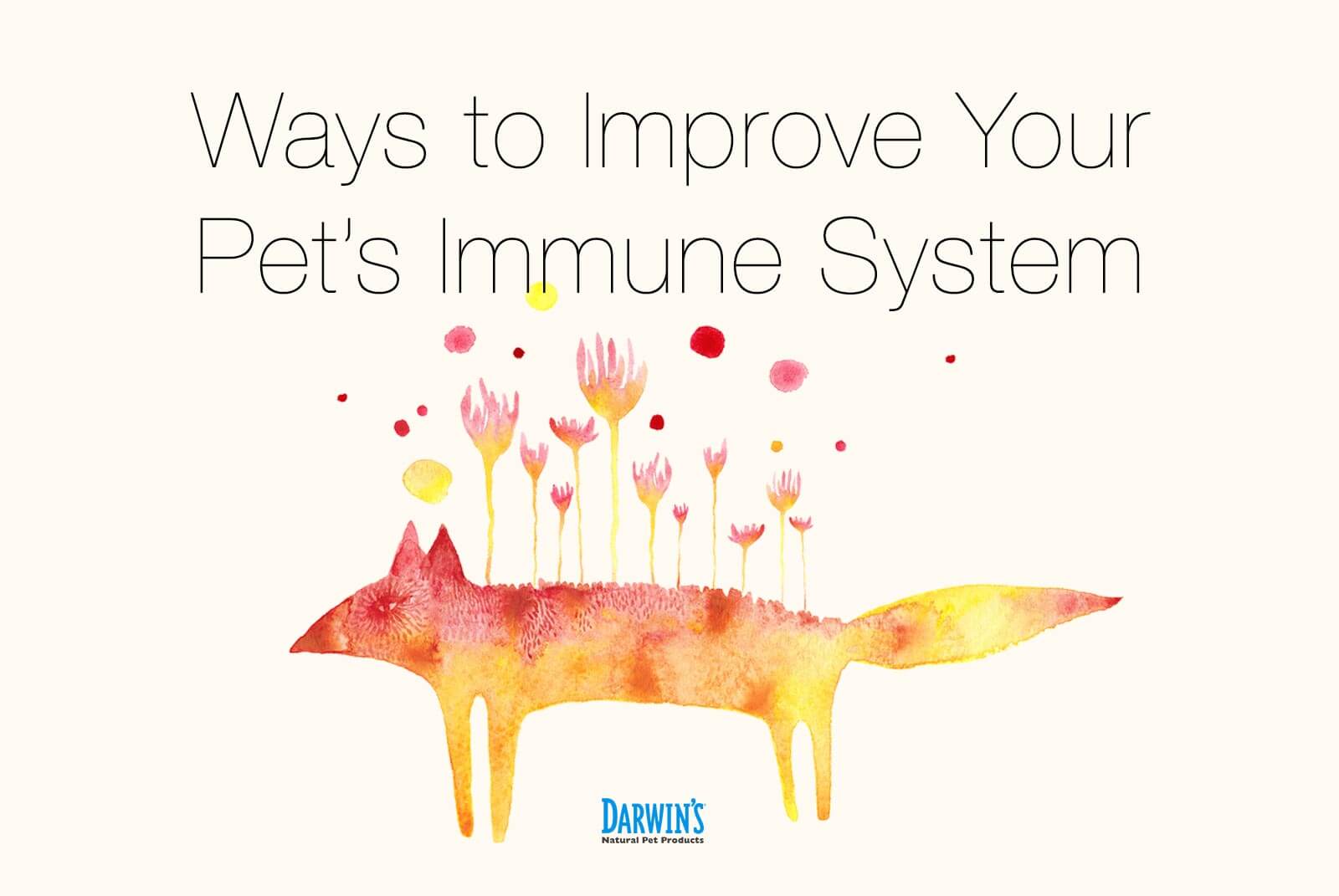10 Ways to Support Your Pet’s Immune System
6/25/15

10 Ways to Support Your Pet’s Immune System
The immune system is an intricate biological protection system responsible for determining what belongs to and in the body versus what does not belong and requires elimination. It defends the body against infection, disease and foreign substances. Keeping your pet’s immune system in good shape will go a long way in preventing ill health and chronic disease.
1. Feed raw, minimally processed food
Fresh, raw food contains enzymes that aid in digestion. Fresh vegetables contain antioxidants and vitamins in their natural, more absorbable form. On the other hand, highly-processed food, such as dry kibble, loses some amino acids, most of its vitamins, and all enzymes and probiotics during the manufacturing process. Manufacturers try to replace some of these vitamins and minerals with artificial additives but they are typically artificial forms of these nutrients which can be harder to absorb.
2. Go organic as much as possible
Pesticide and herbicide residues are found on over 50% of produce and even higher percentages of grains. These are chemicals designed to kill living organisms – we want to minimize our pets’ exposure to such compounds. In multiple studies, organic foods have been shown to have higher nutrient values than their conventional counterparts as well.
3. Clean, fresh water
Depending on where you live, the tap water can be anywhere from almost acceptable to fairly toxic. The fluoride and chlorine add stress your companion’s elimination system. Filtered water is best, followed by bottled water and spring water. Dogs, and especially cats, that eat a raw food diet receive a good deal of the moisture they need from their food.
4. Avoid Chemical Insecticides & Flea Treatments
Chemical insecticides should be avoided in your home and yard for your companion’s sake. Animals are much closer to the ground and breathe in whatever chemical residues are on the floor and furniture. They also come into contact with chemicals used on the yard or local park, then groom these residues from their coat and paws. There are natural alternatives to the chemical products used by exterminators and used in lawn and yard care (a simple internet search on natural pest control or weed control is a good place to start). Chemical flea treatments such as spot-on insecticides are absorbed into your animal’s system adding stress to the liver and kidneys as well as the digestive system. Natural flea control options are widely available and are effective without negatively affecting your companion’s immune system.
5. Keep a Healthy House, Free of Toxins
Household cleaning products are another source of toxins to your companion. Many cleaners, air fresheners and laundry detergents contain bleach, ammonia and other chemicals that our companions breathe in, walk on and lick from their paws. Keeping the floors clean is important since the dirt tracked in from outside likely contains heavy metals and other toxins, but using more natural cleaning products will keep the household healthier. Plug-in air fresheners are another source of indoor pollution – they may smell nice, but the petrochemicals that carry that scent offer a constant dose of toxins to your companion.
6. Limit Vaccinations
Many holistic veterinarians agree that over-vaccination is a significant contributor to the rising rates of chronic disease and cancer in cats and dogs. A limited vaccine program is highly recommended– and is especially important if your pet belongs to any of the breeds known to be more susceptible to cancer and chronic disease.
7. Medicate Wisely, and Minimally
Antibiotics and steroids are necessary tools in any veterinarian’s trade, but they are quite often overused. Repeated rounds of antibiotics to address chronic urinary tract issues, or steroids to treat itchy skin and allergies, tax the immune system – sometimes leaving the animal susceptible to greater health problems than it started with. A natural approach to chronic health issues begins with a natural, raw diet and involves supporting the animal’s system in its healing process from within, avoiding suppression of symptoms with medications as much as possible.
8. Exercise
Moderate exercise has been shown to improve immune factors in humans and animals. Natural light is also important, so walks in the great outdoors are the best option for dogs and outdoor cats. Indoor cats should be provided with plenty of toys and climbing structures.
9. Control Weight
Keeping your pet’s weight under control is also key – overweight animals are much more susceptible to chronic and acute diseases and infections. A healthy diet of raw, minimally processed food (point 1 in my previous post) often helps animals maintain a healthy weight.
10. Minimize Stress
Stress affects animals the same way it affects us – weakening the immune system. Dogs and cats with anxiety issues of any kind need assistance in moderating their fears. Flower Essences, Homeopathic Remedies and Herbal Remedies can be highly beneficial for animals with anxiety problems or that are under stress. Behavioral modification training is essential for dogs with anxiety; and environmental alterations such as separate territories for cats that do not get along well, or additional litter boxes and cat trees or safe resting areas can make a big difference for anxious cats.
A high quality, natural diet is the most important component in building and supporting a healthy immune system. Along with a top quality diet, exercise, minimal exposure to toxins and a low-stress living environment are of utmost importance to the health of your companion.



